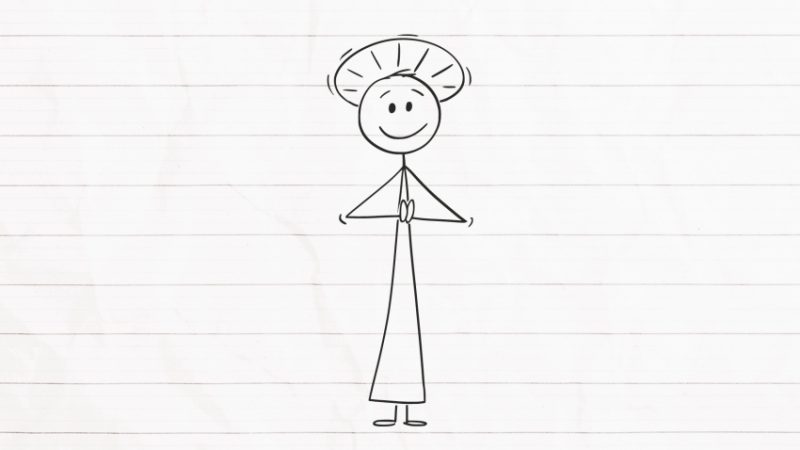Initial Teacher Training – What we’ve lost, and why it matters

Priorities when training teachers have changed – which might partly explain our current recruitment issues, argues Dr Shirley Lawes…

There has been increasing concern in recent years over the diminishing interest among graduates to enter teaching. There’s also the ongoing problem of ECTs leaving the profession within just a few years.
These challenges now present a critical problem when it comes to some secondary subject areas. Pay, workload and stress are no doubt all contributing factors. But we must look beyond the obvious and try understand the real underlying issues.
To put it bluntly, teaching is now barely seen as a profession at all. The process of learning to become a teacher largely focuses on jumping through hoops to acquire ‘competence’.
Initial Teacher Training
The clue is in the name we now use to refer to this process. We’ve replaced ‘Initial Teacher Education’ with ‘Initial Teacher Training’. As the contributing role played by higher education institutions has diminished, the acquisition of practical ‘skills’ on the job has become increasingly dominant.
As a result, we’ve largely abandoned the complex intellectual transformation of university graduates with specialist subject knowledge into professionals capable of transmitting said knowledge and enabling children to learn.
The subject discipline element that we used to treat as a priority in many teacher training courses has gradually dwindled. It’s been replaced by the imparting of generic ‘professional knowledge’ focused more on the social aspects of schooling.
“The process of learning to become a teacher largely focuses on jumping through hoops to acquire ‘competence’”
Over the past 30 years or so, we’ve come to see teaching as a practical activity, first and foremost. Those charged with training teachers have therefore become more concerned with producing compliant, conformist and competent practitioners. This is rather than creating educational thinkers.
This has in turn led to an increasing emphasis on evidence over ideas in relation to teaching.
This has had a transformative impact on the profession at large. The instrumental view of education now in the ascendancy, wedded to a managerial ethos, has encouraged an obsession with data collection and formulaic teaching. This gets good exam results, but fails to inspire most aspiring secondary student teachers once they take up their posts.
Competence-based assessment
The power of education to transform people through the passing on of knowledge has been stymied by three core goals:
- securing good exam results
- doing well in Ofsted inspections
- placing high in league tables
In such a culture, student teachers will have difficulty in sustaining their enthusiasm and passion for their subject. Nor are they provided with ideas and knowledge around education that might enable them to better understand their practice, empower them to take risks and actively question certain aspects of policy and practice.
The introduction of a competence-based assessment framework for initial teacher training in 1994 was a watershed moment. It fundamentally changed how we understood the role of the teacher, and teaching more broadly.
True, this new Partnership Model did introduce a more systematic and rigorous preparation for teaching. Yet the standards (list of competences) required to achieve qualified teacher status has arguably led to an oversimplification and crude recording of the complex judgements made by teachers in course of their work.
The hitherto often blurred conception of knowledge in the assessment of competence, or achievement of ‘standards’ is frequently boiled down to what’s directly relevant and functional. We therefore leave unexamined or excluded completely the broader intellectual endeavour that might form part of the learning a teacher undergoes .
A delivery model
Knowledge about teaching and education has become ever more narrowly prescribed against a set of ‘skills’ to be demonstrated in the workplace and assessed mainly by workplace practitioners.
We’ve increasingly reduced the importance of a teacher’s knowledge of a subject discipline. We often ignore ‘standards’ in this area, or at best, regard them as secondary.
It might be justifiably argued that teachers trained to teach during the past three decades have been inculcated into a ‘delivery model’ of teaching a narrow, exam-driven curriculum. This is accompanied by data-driven measures of attainment and formulaic teaching methods.
The watchword here is ‘compliance’. This is with regards to both the accountability measures imposed by external agencies (notably Ofsted), and to the attitudes and skills developed in teacher training programmes.
I don’t mean to suggest that teachers have become automatons. My aim is more to highlight the extent to which teaching has become prescribed. New teachers have been inducted into a school system that encourages conformity to a set of procedures based on specific objectives. These are designed to produce narrowly defined ‘learning outcomes’, which can then be observed and evidenced.
Having a passion for one’s subject and the knowledge to inspire young people seems to no longer be the fundamental raison d’être of the secondary teacher.
Since the 1990s there has been a profound change in the ‘teacher mindset’. Plus, there’s been a shift in how we understand the professional practice of the teacher.
The end of ‘liberal education’
The notion of ‘liberal education’ – that education is a ‘good in itself’ – has been severely eroded. Schooling is now often viewed in instrumental terms under the assumption that the purpose of education is to serve the needs of the economy.
Learning to teach in this highly prescriptive context is both limited and limiting. The form that lessons should take is defined and checked. Aims, objectives and learning outcomes are assigned more importance than the actual knowledge content of the lesson.
This leaves the trainee teacher with little scope to experiment, develop their own teaching style or think independently about how they might inspire learners to learn a subject.
Yet learning ‘how we do it here’ isn’t enough. ‘Tips for teachers’, once disparaged, now seem to be accepted as all that student teachers need to start out in teaching. But that too is not enough. The very idea of teaching as a vocation, as a ‘job for life’, has largely disappeared. Schemes like Teach First actively encourage the notion of teaching being a short-term job. They suggest that accelerated promotion is something to aspire to.
To me, this seems like a destructive view of an education system originally founded on a set of ideas around what it means to be human, which held teaching as a noble profession.
We can only really understand the questions of what it means to be a teacher and how one should teach within the broader framework of educational knowledge.
A serious business
Student teachers are perhaps more susceptible to the power of ideas than some of their more experienced colleagues. So it may be that being initiated into a knowledge about education that goes beyond ‘competence’ is what’s needed for education to once again become a dynamic enterprise more likely to attract well qualified and committed young people.
Of course, practical skills are important. But we shouldn’t ignore or defer ideas about education and the fostering of scholarly attitudes. It may seem old fashioned to talk about the foundation disciplines of education, but that’s where powerful knowledge lies.
Far from being relics from the past, the study of education through its foundation disciplines and the serious study of pedagogy would provide student teachers with a critical grasp of present day issues. It would also provide a better understanding of learning and greater sensitivity to their students’ needs.
This would revive teaching as a profession and encourage teachers to be ‘educational thinkers’, as well as competent practitioners.
Education is a serious business that concerns the future of society. As things stand, successive generations of student teachers have been teaching generations of school students with little understanding of the principles and theories underpinning their own practice, and therefore what education means.
I once heard a student teacher tell someone that she was on ‘The crammer course from hell’. No doubt, learning to teach is a challenging developmental process, but one that’s insufficiently recognised.
It’s time for a fundamental rethink of Initial Teacher Training and a restoration of its educational content. We need to recognise the power of knowledge and ideas. We also need to recognise the importance of developing moral autonomy across the teaching profession.
Dr Shirley Lawes is a lecturer in modern foreign languages at UCL Institute of Education












